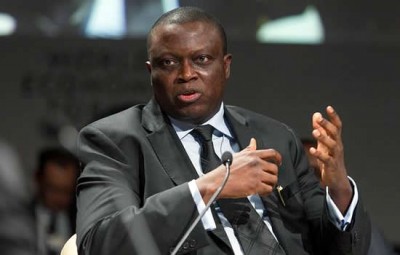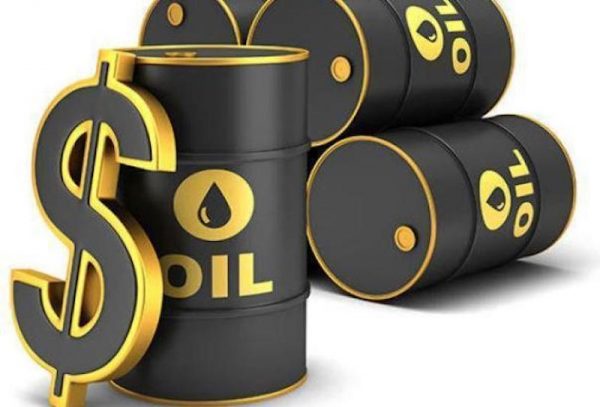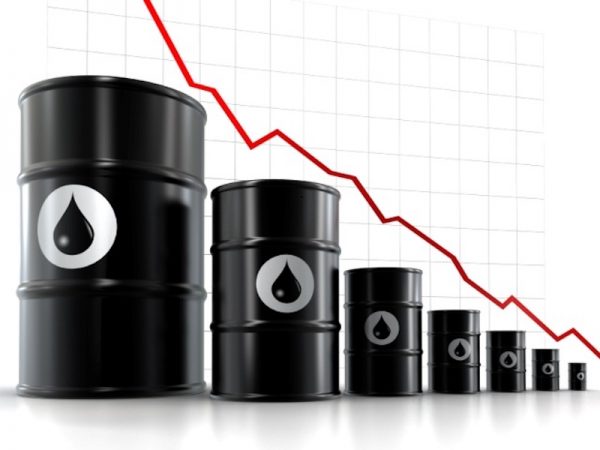Budget: Hope rises as oil prices hit $58.37
 Oil prices hit the highest level in 18 months on the first trading day of the year yesterday, signaling bright prospects for the funding of the nation’s 2017 budget, which pegged its oil price budget benchmark at $42.5 per barrel.
Oil prices hit the highest level in 18 months on the first trading day of the year yesterday, signaling bright prospects for the funding of the nation’s 2017 budget, which pegged its oil price budget benchmark at $42.5 per barrel.
The development may not be unconnected with a deal between Organisation of Petroleum Exporting Countries (OPEC) and other big oil exporters to cut production, which began on Sunday, in a bid to drain a global supply glut.
Brent futures were up 46 cents, or 0.8 per cent, at $58.37 a barrel by 11:07 am EST (1607 GMT). US West Texas Intermediate (WTI) crude was up 46 cents or 0.9 per cent at $54.18 per barrel.
Minister of State for Petroleum Resources, Mr. Ibe Kachikwu, had in December 2016, said the price of oil is expected to be about $60 per barrel in 2017.
Kachikwu made the assertion while speaking at a Bloomberg markets summit in Abu Dhabi on December 7, 2016.
“I am hoping that we are heading towards $60 per barrel and I don’t see higher than that,” said Kachikwu when asked about the expected oil price, one year down the line next December .
The Minister also admitted that the price range of $60 per barrel would be beneficial to both consumers and producers.
Recall that OPEC, at its 171st meeting at its headquarters in Vienna on November 30, 2016, reached a landmark deal that would effectively cut production by about 1.8 million barrels per day (mbpd) or about 4.5 per cent of current production, to 32.5 mbpd.
The November agreement followed earlier meetings held in September in Algeria where each member country reached a consensus on the need to cut production.
The 171st meeting was the first time since 2008 that OPEC would be accomplishing such a feat, which is expected to tackle the key challenge of low price in the international market, which has affected the global economy with most OPEC member countries, including Nigeria, feeling the impact.
Member countries at the meeting had agreed on the deal where considerations of the cartel offered to Iran, Libya and Nigeria would mean that in 2017, total production might likely increase, even as other members seek to cut output in the first quarter of next year.
In the agreement where the countries are exempted from the production, Nigeria was accommodated due to some of the oil and gas facilities damaged by militant attacks in recent months.
Kachikwu had led Nigeria’s delegation at the meeting and the negotiation saw Nigeria get an exemption from the production cut. The concession was given as the country has been through production challenges recently due to the vandalism of oil and gas infrastructure, which has negatively affected the country’s ability to produce oil optimally in the recent past.
“WTI was off to a strong start to this New Year with some support developing off the reports that Kuwait and Oman are already in progress of enacting agreed-upon cuts,” Jim Ritterbusch, President of Chicago-based energy advisory firm, Ritterbusch & Associates, said in a note.
“Although this development appeared to come as a surprise to the market, this should have been expected as initial adherence to the agreed upon production reduction is apt to be quite high at least 80 to 85 per cent,” Ritterbusch added.
Investors will be watching OPEC closely to see whether the group’s members keep their promises to reduce production.
“If 2016 was the year of words, 2017 must be the year of actions,” said Tamas Varga, senior oil analyst at London brokerage PVM Oil Associates.
Non-OPEC Middle Eastern oil producer Oman told customers last week that it would cut its crude oil term allocation volumes by fivr per cent in March.
Elsewhere, Libya, one of two OPEC countries exempt from the output cuts, has increased its production to 685,000 bpd, from around 600,000 bpd in December, an official at the National Oil Corporation said on Sunday.
Non-OPEC Russia’s oil production in December remained unchanged at 11.21 million bpd, near a 30-year high, but it was preparing to cut output by 300,000 bpd in the first half of 2017 in its contribution to the accord.






